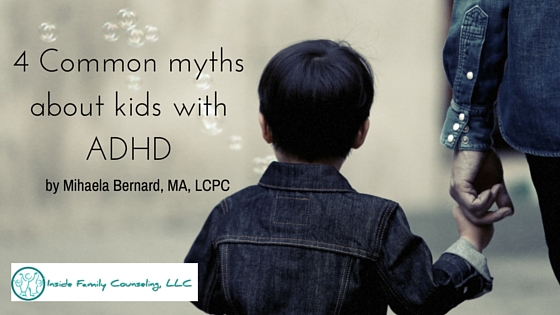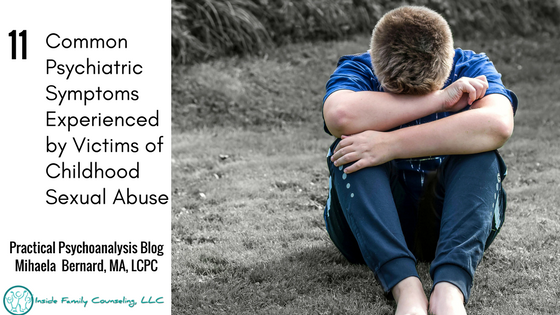Before we dive in, let me just mention a few facts about ADHD.
- According to the Center for Decease Control and Prevention, 6.4 million children ages 4 to 17 were diagnosed with Attention Deficit Hyperactivity Disorder in 2011-2012, a 42% increase in diagnoses compared to 2003-2004.
- 3.5 million of those diagnosed were prescribed medication for the condition.
- ADHD is one of the most commonly diagnosed disorders in childhood and adolescence and it usually continues into adulthood.
- Many symptoms of ADHD resembled other mental health conditions and coincide with normal developmental behaviors, depending on the child’s age.
To avoid your child being misdiagnosed, it is important to get an accurate diagnosis with a battery of tests, performed by a neuropsychologist. Just like I do in my practice, child and adolescent therapists usually collaborate with psychologists, who specialize in psychological testing and assessment.
Okay, now let’s look at the 4 common myths about attention deficit hyperactivity disorder and go over a few suggestions on how to address them at home:
Myth 1: Kids with ADHD don’t pay attention. I’ve talked about this before. The problem for kids with ADHD is not that they don’t pay attention but that they pay too much attention to EVERYTHING around them, making it difficult to isolate noises, objects or smells in their environment.They appear distracted, unfocused and easily sidetracked, while in truth, their minds are running wild in many different directions, absorbing all kinds of information from their surrounding. If properly supported so that they can take advantage of their quick minds, kids with ADHD can be quite creative, talented and productive.
Myth2: S/he just doesn’t listen to me! This is a very common complaint of parents of kids with ADHD. The problem, however, is not that they don’t listen but that they’ve already moved on. Your best bet in this situation is to get used to repeating yourself and to try not to get frustrated with your kids because they need several reminders.
Instead of getting impatient and threaten the kids with sanctions, try and reward them with praise and attention when they manage to complete a task quickly. Being empathic and supportive to your child with ADHD is the best thing you can do not only for them but also for yourself and your own sanity.
Myth 3: If I keep him/her busy, I’ll exhaust all his/her energy and s/he’ll be able to settle down. This may seem like a good solution to the hyperactivity and excessive energy issue that parents of kids with ADHD share, but it can actually work against you. Cramping a full-day program with activities will be overwhelming for any child, let alone for a child with special needs.
It is important to allow plenty of time for transitions from one activity to another so that your child has time to process all the new experiences and relax. Having downtimes when both you and your kids rest is also important; and if your kids’ rest consists of occupying themselves with a preferred game or activity, let them do it.
Sticking to a predictable routine to your day such as same times for meals, snacks and naps, provides a solid foundation of the day for your children and opens an opportunity to engage in new and exciting activities in-between. Remember though, one big activity per day is probably plenty for you special little ones.
Myth 4: Medication is enough to treat ADHD. Medication certainly will help your kid be able to focus better during school and when working on homework at home. However, often times kids with attention deficit also struggle with anxiety, which can also interfere with their ability to follow direction and be successful at school. Adding weekly psychotherapy to your treatment plan is a great way to address any other co-occuring issues your child may be facing and can be a great resource for you as well.
Do you have a child at home that struggles with ADHD? Call me at 773-470-3106 for a free 30-minute consultation to see if psychotherapy is the right fit for you and your family.
For more articles on common mental health issues affecting you and your family, subscribe to Mental Health Digest and get the latest issue emailed to you today by leaving your name and email address in the contact form here.
You may also like:
Attention Deficit Hyperactivity Disorder: 4 Ways to Support Your Anxious Child
Parenting Children with Special Needs: The 1 Intervention You Cannot Afford to Neglect








